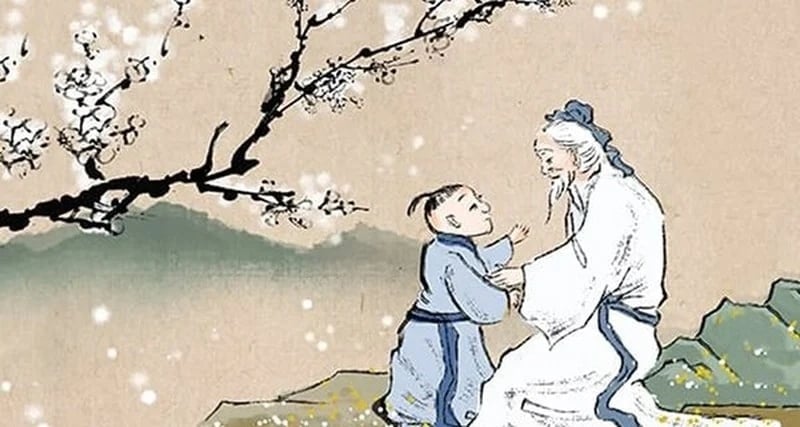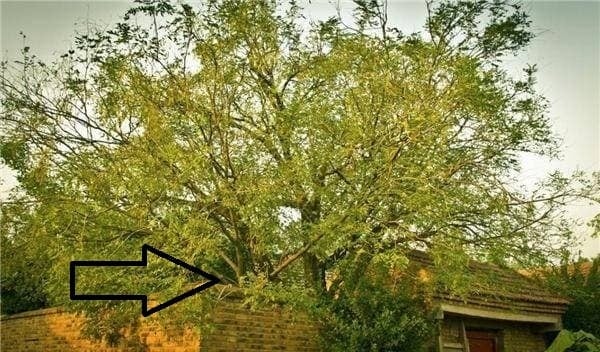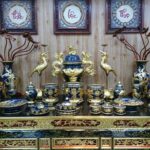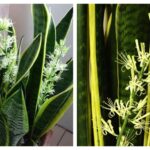In the past, elders often advised their offspring to plant trees that hold auspicious feng shui meanings, aiming to attract wealth, luck, and peace for the family. Among them, three types of trees stood out as particularly important for every household to have. Even in times of economic hardship, these trees should not be cut down, as doing so could dissipate one’s fortune and bring misfortune to the family members.
Goldenrain Tree
Nowadays, the Goldenrain Tree is commonly planted in parks and residential areas. It boasts lush, deep green leaves and a tall, majestic stature, resembling a refreshing green cloud from afar. The tree’s flowers are distinctive in their white color and are not only edible but also prized in traditional medicine for their medicinal properties.
According to an ancient legend, during the feudal era, officials and soldiers drove villagers out of their homeland, but the villagers resolutely stood their ground and rebelled against the court. The Goldenrain Tree is believed to possess the power to safeguard the owner’s wealth, ward off evil spirits, and bring good luck. As such, ancestors refrained from cutting down this tree, fearing the loss of fortune and luck for their families.

The Goldenrain Tree is now commonly planted in parks and residential areas.
Elm Tree
The Elm Tree, also known as the “Money Elm” or “Surplus Money Elm,” is another tree that ancestors were reluctant to cut down. Its leaves are not only refreshing but also nutritious, evoking childhood memories of eating fresh elm leaves with a hint of sweetness.
During difficult times, especially in the face of famine, elm leaves could be dried and used as a food source, providing significantly more nutritional value than other types of leaves. The elm tree’s bark could also be consumed and was considered a lifeline during times of scarcity.
Moreover, the elm bark served as a medicinal resource when healthcare was scarce. Thus, ancestors preserved the elm tree to ensure that it would continue to benefit future generations, much like conserving precious natural resources for sustainable development.

The Elm Tree, also known as the “Money Elm” or “Surplus Money Elm.”
Willow Tree
The Willow Tree is a familiar sight to many, intertwined with poetry and songs from an early age. In feng shui, the willow tree symbolizes unwanted farewells and represents hope and faith in the future.
Not only does the willow tree possess a robust vitality, but it also carries profound meanings and boasts remarkable medicinal properties. Therefore, ancestors advised against cutting down willow trees under any circumstances, as they bring spiritual value and practical benefits.
These trees are cherished for their remarkable properties, and a passed-down proverb reminds us not to sacrifice long-term values for short-term gains. It also serves as a warning to modern society about sustainable development and the consequences of environmental destruction.






































